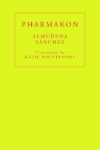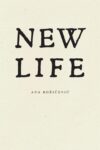Sometimes my complex self wants only simple things, like being a writer and non-practicing witch living in a beautiful cottage with big gardens beside a beach or a lake, with my lover and a few rabbits, not conforming to capitalism, for it often kills joy. I’m only 19 years old and already fed up with ambitions, or maybe they are just saturated into one figure of an ideal life, alone and such, almost nobody in the age of the Internet wants to live. Or I’m probably exhausted by the unfit ways in which other people love me and I love myself.
Knowing that sometimes I find people’s way of loving me to be apractic, I have to create a scenario in which I stay in a place of emotional abundance—thus the cottage, the beach, the rabbits. Sometimes I blame my sun sign for shaping me as a stubborn person, but here again rarity is how ways of loving present themselves to me. I don’t know what it means to become only one thing, for I’m honestly not; I don’t know what it means to be loved only partially, to be longed for but never as a whole.
*
My suburban family doesn’t come from a highbrow place, let alone a literary one. I didn’t have access to a big library; I was thankful for secondhand issues of the children’s magazine Bobo that my mother used to buy me after school. From the short stories to the advice column to the comics, I found the magazine writing cathartic and tonic. Long before I jumped into longer pages, like Indonesian and English textbooks at school, I had fallen in love with words. Believing in writing’s grace and blessing, I thought it was the purest thing. I thought writers were the purest people who ever walked the earth. Having looked into a mirror and seen my near-future reflection, at a very young age, I decided to become a writer. Nobody else yet knew.
The first pieces of mine ever published were two short stories that appeared in a regional newspaper when I was 14, one about a local politician refusing a bribe, and the other about a parent-child relationship. My parents read the latter when I finally handed them the clip. They said nothing, for they knew it was inspired by a fight we’d had. I realized I wanted them to see me as a potential prodigy—that I could articulate what could have been said between us, if only we were open to each other. To hell with parents—I wanted my brothers and everyone else to see me as a writer.
Even now, I want to be perceived and treated as a writer even when I’m at my most procrastinatory, even when my hands are not creating the art they should be crafting. One of my ways of being kind to myself is by respecting my own aspirations. It’s one step in attempting to manifest them.
*
We glorify our “firsts” because they set precedents for the following acts. Often adjectives accompany these firsts. Unforgettable first love that sedates, awkward first kiss that quenches, unforgivable first best friend betrayal that traumatizes, pitiless first heartbreak that leaves bruises. Having been raised in a rather unsupportive community, I was surprised when I met my first boyfriend in high school. He loved me as who I factually was at that moment—a young woman—and as who I aspired to be—a writer and poet—and he did a great job, even though we separated in the end.
He admired me in ways I couldn’t quite describe: with love, but with only a partial respect, for I was not yet the writer I aspired to become. It felt weird but satisfying. Sometimes I would show him my drafts, and he would comment. He knew I thrived off of praise instead of criticism. I had been very self-critical, and he understood there was no more room for him to be so too. We each gifted each other a novel on days other than our birthdays, and I knew that’s how someone should love a writer—by treating the writer as a writer. However, when we fought, I was back to being a girlfriend of my boyfriend. It was the way things went around. It is difficult for me now to engage in another relationship in which I’m not loved in that most comfortable manner.
When I love a man, I try to love him in the most romantic way, as poetic as I can be. Shamelessly, I expect the same in return. Why does it matter at all that this guy loves me as a woman but not as a writer? Why does it matter at all that this guy loves me as a writer but not as a woman? I’m not entirely sure, but I’m certain something feels missing. There’s arguably a tiny slice of a dimension in which those two sides—being a writer and being a woman—don’t overlap, and perhaps there’s a space for a singular approach of loving my duality, yet when it takes place, I feel completely detached from the reality I choose to immerse myself in. Perhaps it also has something to do with my childhood dream. Perhaps?
*
There was this person who I liked in 2015. When we got acquainted via an app, I knew he cared so much about my creative work but did not care enough for me. He first found me through my poems and was excited to read the forthcoming ones—congratulating me for getting published—and he was invested in the idea of getting to know me in real life, yet he didn’t find me—my history of depression, my self-deprecating jokes, my working class family, among many other things I’d soon include in my memoir—as fascinating as my poems. We were so into each other. I could tell from the language we exchanged. But I also eventually could tell that deep down, he only wanted to be written for, or written about.
Although he rarely explicitly expressed it, except saying, “Do you ever want to write about me?” and things along those lines, selfishly he wanted to be my muse. There’s nothing wrong with wanting to this—sometimes I want it, too, since it is another of the purest things to have inspired the birth of art—but he was greedy to want to be both a lover and a muse. I noticed that he wanted me as a kind of whole, too, but not with the kind of wholeness that includes self-loathing and class difference.
At most, knowing that he sincerely saw me as a writer, I wanted him just to be my reader. We stopped seeing each other because I imagined he found me imperfect as a person. I wanted to tell him it is common both to be depressed and to excel at writing, but secrecy is what makes my so-called solitary life amusing to me. One day, I was featured in a column in a literary magazine along with other writers of the week, and, unsurprisingly, he came back again. For a moment I was a goddess to him. When my thunder was stolen by another depressive episode, he was back to looking at me as a wonderful writer whom he desired but never wanted to date. To him I was not girlfriend material. And as ridiculous as it sounds, it still disappoints, as if being a writer is not enough to merit the most appropriate way of being in love and being loved.
*
In 2016, there was another person who liked me so much, and I liked him too. We met in a community of shared interests, and I liked the way we gave meaning to trivial things, as if everything had a degree of depth. We would drive miles and miles to a beach and share iced tea like we were twins. When things turned from platonic to romantic, I was happy because somebody finally got me, accepted me at my grossest and even at my most depressed. It was easy, everything seemed just right—until I found out that he never clicked on my publication links, not even once.
Was I disappointed? Yes. Very much. Was he less than a lover then? I have no idea. Better to say “not really.” He just never saw me that way, the side of me I aspire to be and am working on every day. I didn’t want any of it; the few great weeks were over sooner that I thought. The overwhelming dashed hopes of being loved as a woman but not as a writer overcomes the otherwise opposite scenario. No matter how aware I was of the ephemerality of that relationship, my aspirations didn’t stop dying a little bit.
In the first chapter of John Berger’s And Our Faces, My Heart, Brief as Photos, he investigates two events constituted by a man that lead to two times coexisting and corresponding with those events; biological body event/time and consciousness event/time. “The first time understands itself, which is why animals have no philosophical problems. The second time has been understood in different ways in different periods. It is indeed the first task of any culture to propose an understanding of the time of consciousness, of the relations of past to future realized as such,” he writes. Maybe that is what happens with me, and with most people whose aspiration is to become a voice of something, or simply a voice: my body as a woman and my consciousness that makes up my writing trail along with the affective and cognitive process behind it. Both times in me want to be simultaneously accommodated by one’s way of loving me.
Our ways of loving have nothing to do with whether we are fond of a particular person or not. I dated some boys I didn’t like who treated me the way I liked, and vice versa; the worst kind of boy I dated is the kind that I liked as a person but with whom I never seemed to become romantically compatible. Other people’s ways of loving us, regardless, have something to do with us—the way we exercise compassion to ourselves alone. Our selves are complex, and it is okay to want complex things instead of simple ones, like being loved both as writer—aspiring career choice or occupation or another figure we want to become—and as a woman—embodied person with sometimes not-so-pure motives. I mostly want simple things, though, like living in a joyous state and becoming contemplative whenever I can afford to. However, just a friendly reminder: sometimes ostensible complexity signifies subjacent unfamiliarity. Perhaps, after all, familiarity is one of the keys to ways of loving, how to defeat the hardship of becoming the fit lover.
Innas Tsuroiya is a writer and poet living in Indonesia. Follow her on Twitter @innazous.
This post may contain affiliate links.







